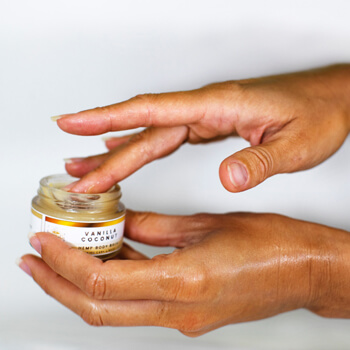CBD – Does it really work?

CBD is the new “health” fad for 2019
It is exploding in popularity and seems to be in everything. It’s almost getting to the point that it’s hard to find food, personal care products and supplements without it. (OK, that’s an exaggeration.).
What is CBD?
Cannabidiol, or CBD, comes from the cannabis sativa plant. The plant is most commonly known in the U.S. as marijuana or hemp. It contains over 80 chemicals, one of which is CBD, and has been harvested for centuries across the globe for many purposes such as fiber (hemp), seed oil, recreation, spiritual enhancement and medicine. CBD is different from the psychoactive chemical also found in the plant, THC.
Why is CBD so Popular?
Mostly, at this point, it’s more marketing than science. The truth is that nobody really knows if CBD is effective in improving health, or whether its use has any long term health risks.
Here’s what we know: In 2018, the US Food and Drug Administration (FDA) approved a high dose formulation of CBD in a drug called Epidolex to treat rare seizure disorders in children. Three clinical trials proved it was effective for that specific purpose. No other CBD formulated as a drug has been approved by the FDA.
In the meantime, medical myths about CBD are being promoted wildly. It’s being marketed, with insufficient evidence, to help with anxiety, depression, post-traumatic stress disorder, sleep, Crohn disease, Parkinson’s disease and aches and pains. Some people may be benefiting from a placebo effect [having a positive reaction without any help from the drug]," said Pieter Cohen, MD. "We need to know more and it’s not helpful to have the market flooded with misinformation."
Is it Safe?
Most people think that CBD is safe, but why if there’s no research to prove it? This may be piggybacking on the national movement to legalize marijuana. This movement often reinforces claims about marijuana safety without evidence-based research or regulatory approval. CHA providers do not prescribe medical marijuana and CHA’s Medical Staff has not taken a position on CBD.
"What we do know, based on research done by people analyzing purchased products, is that the amount of CBD listed on labels varies from what’s actually in products. Some products are found to contain THC, the compound that makes people high," said Dr. Cohen. "Without accurate labeling, it’s impossible to determine safety."
"What you get one month could be very different from the next batch even with the same manufacturer," explained Monica Akus, PharmD, BCPS, DPLA. "Natural products can be effective. However, they can have very real side effects and drug interactions too."
There is enough information to say that CBD use may be unsafe if you’re pregnant and/or breastfeeding. CBD products are often mixed with other ingredients that may cause harm to your fetus or baby.
"We need to know a lot more about how CBD interacts with other drugs," added Dr. Akus. "Our liver lets us clean out toxins from our bodies. CBD may force the liver to work harder and increase side effects of other drugs that pass through the liver. Another side effect of CBD may be sleepiness or drowsiness. If people are taking sedatives that make them sleepy, CBD may increase that effect. There’s a lot more to learn about CBD and it’s better to avoid using it until it’s proven to be safe."
Is it legal?
The passage of the 2018 Farm Bill made it legal to sell hemp and hemp products in the U.S. But that doesn't mean that all hemp-derived CBD products are legal. Since CBD has been studied as a new drug, it can't be legally included in foods, dietary supplements or added to products marketed with therapeutic claims. CBD can only be included in "cosmetic" products and only if it contains less than 0.3% THC. Although not legal, there are products labeled as dietary supplements on the market that contain CBD.
"The FDA sent warning letters to only a handful of manufacturers selling CBD products illegally," said Dr. Cohen. "This allowed the market to explode with their lack of regulatory oversight." Find out about opportunities to reform the law.
Our Advice
CBD may seem like a quick remedy for your aches and pains, but there’s more you need to know. "Instead of trying to figure out if CBD is good or bad, you should see your primary care provider about where you’re hurting," said Dr. Cohen. "We’re here to help you get better safely."
Disclaimer
This articles provide general information for educational purposes only. The information provided in this article, or through linkages to other sites, is not a substitute for medical or professional care, and you should not use the information in place of a visit, call consultation or the advice of your physician or other healthcare provider.